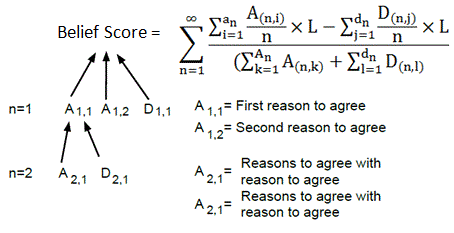Enriching Mathematical Learning Through the Practical Application of Algorithms
Dear Esteemed Mathematics Educators, I am reaching out to you today with an exciting proposition - a unique opportunity to engage your students in the application of mathematical principles in an unconventional and meaningful way. It involves a novel algorithm designed to evaluate and promote ideas based on the strength of the reasoning and evidence provided. Here is the formula we're discussing: Conclusion Score (CS) = ∑ [(LS * RS_agree - LS * RS_disagree) * RIW] + ∑ [(LS * ES_agree - LS * ES_disagree) * EIW] + ∑ [(LS * IS_agree - LS * IS_disagree) * IIW] + ∑ [(LS * BS_agree - LS * BS_disagree) * BIW] + ∑ [(LS * IMS_agree - LS * IMS_disagree) * IMIW] + ∑ [(LS * MS_agree - LS * MS_disagree) * MIW] More detailed information about these variables can be found on our websites: https://github.com/myklob/ideastockexchange and https://www.groupintel.org/. In an era where discourse is increasingly digitized, this algorithm operates within a web-based forum. It allows users to submit reaso...

